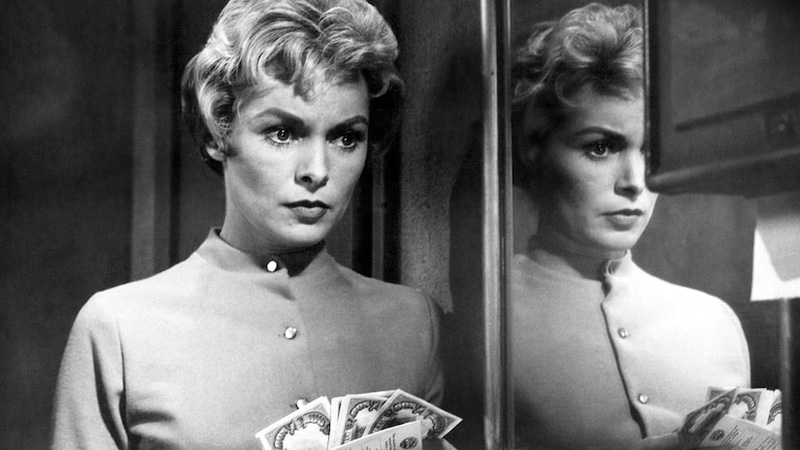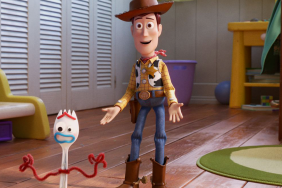TCM has begun hosting two nights dedicated to Movie MacGuffins, and the classic movie lovers’ channel provided ComingSoon.net with the opportunity to speak with hosts Ben Mankiewicz and Eddie Muller about the pesky plot device. We also talk about the new series Reframed that puts controversial films into context. Check out the conversation below!
RELATED: Exclusive Clips of TCM’s Romantic Weekend Getaway With Flannery, Cantone & Mankiewicz!
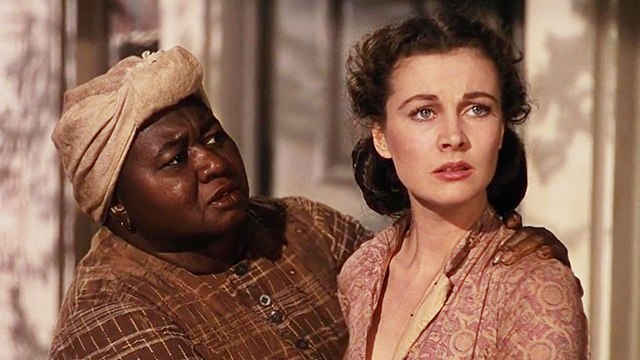
ComingSoon.net: Maybe you guys can fill me in on the whole Reframe. What is the controversy behind Reframe?
Eddie Muller: Well, no, in response to how so many classic films are being buffeted by cultural correctness these days, TCM I think very smartly took the bull by the horns and we’re doing this series. All the hosts are participating in having like, roundtable discussions about putting the films in context. So I guess tomorrow night it starts with Gone with the Wind and Ben and Jacqueline and I discuss the troubled history of Gone with the Wind, when looked at from the perspective of African Americans who might not think this is the greatest movie ever made in the history of Hollywood with good reason. And so, we do this for a number of films. And it’s really interesting, just musicals, comedies, Westerns, even Psycho gets in there, you know? So anyway, it’s good. And I think not speaking for Ben here, but I really enjoyed the conversations that we had. The intros and outros were completely unscripted, but informed. All the hosts have a lot of knowledge and their own opinions about this stuff, so it was good that we got to really express our feelings about this.
Ben Mankiewicz: Some of these movies and all these artforms are being looked at through a different cultural prism now. I mean, they’re being looked at and talked about. This is what we do. This was an opportunity to show people, hey, like we’re giving the movies context, a cultural context, Hollywood context, historical context. We’ve been doing that since 1994, TCM. This is what we do. So this feels really natural. And because we want these movies to continue to be part of the conversation, right? I mean, it’s valuable to see the manner in which we looked at gender roles and at race and women in movies. This is understanding that history and talking about that history is, again, it’s what we do. And that was also just the reason we liked the conversations, because it’s fun for us, right? It’s exciting. I don’t like to talk about Gone with the Wind unless we’re talking about the things – we drive people crazy about Gone with the Wind, but that’s what makes the conversation good. That’s okay.
Muller: Exactly. That’s actually the only reason I’m going to talk about Gone with the Wind.
CS: But it is an interesting subject, and it is something that I’ve had to kind of force myself to reframe the way I look at certain movies, even movies that I really love, like I was talking to some friends the other day about how now a lot of people are putting a disclaimer in front of Aliens because Jenette Goldstein is playing a Latino woman. Or you know, or thinking about a movie like The Good, the Bad and the Ugly, where you’ve got Eli Wallach playing a Mexican. It’s like, we love those characters, and it’s still okay to love those movies, but it’s a different context. You have to understand that that type of filmmaking isn’t appropriate anymore.
Muller: Yeah, no, I agree. It was really interesting. The other day I was going through some stuff that I had written just a few years ago, and it was interesting to note like how many times I would reference a film and talk about it at length without even mentioning the sticking points. I wrote this big thing about Viva Zapata!. And I never once mentioned that Marlon Brando is playing Emiliano Zapato in this film, and that today, that’s all anybody would talk about, was why is Marlon Brando playing this part instead of Anthony Quinn? But it didn’t even occur to me, honestly, to even site that, when I wrote this piece like three years ago. So obviously, something has shifted in the culture, and now you kind of can’t ignore it, which is fine. It’s perfectly fine.
And the point I was making, Ben, before you jumped on here was because I had mentioned to Taryn, you know, this is all jumping off tomorrow night and she kind of took a deep breath and said, “Yeah, and we’re already getting a lot of comments on it.” And there’s going to be those people on social media and stuff, where the people are going to push back and say now it’s all being spoiled by political correctness, to which I say, we’re introducing the movie. We’re showing you the movie. So how can you say it’s being spoiled if you can’t take five minutes of context and then three hours and whatever it is of Gone with the Wind uncut and unedited for a contemporary audience, how are we spoiling anything? I just don’t get that attitude.

Mankiewicz: Yeah, I was just doing an interview with Parade Magazine. They were just looking at movies from 50 years ago, 40, 30, and the movie they picked from 1971 was Dirty Harry. You know, and I started talking about it, and as soon as I started talking about it I’m like, yeah, white cop doesn’t play by the rules, threatens to kill every brown person he sees unless they give him the information. And we’re like, yeah, that guy’s a criminal. That’s effed up. And it doesn’t mean Dirty Harry’s removed from streaming services or that we’re not going to show it or talk about it, but yeah. It’s okay to have that be part of the conversation.
CS: Yeah, and that series itself is sullied a little bit by I think the sequels in the sense that –
Mankiewicz: Oh yes, definitely.
CS: I think the first one, they weren’t trying to glorify the character. I think he was an antihero.
Mankiewicz: That’s true, yeah.
CS: But I think because he was sort of redeemed or reframed in the sequels, yeah, then it makes the first one a little more problematic.
Muller: You’re absolutely right. I distinctly remember seeing a Mike Douglas show or something at the time, where the entire cast and crew of Dirty Harry and Don Siegel clearly said, “Clint’s not playing a hero in this movie. This character’s not a hero.” And he said, “He’s a fascist with a badge.” That’s how Don Seigel described it, you know? And it’s like, okay. But then, just as you pointed out, Max, then it made money.
Mankiewicz: Right. And I’m not sure people got that. I mean, they were still rooting for him, you know?
Muller: Of course, of course.
CS: Yeah, and obviously you can’t control people are going to glom onto Gordon Gekko or Scarface or whoever and they’re just going to miss the point.
Mankiewicz: Yeah, but yeah, so I get it. But it’s okay, man. It’s all right. They’re not going anywhere and we can learn from them, but that doesn’t mean we can’t also just enjoy it.
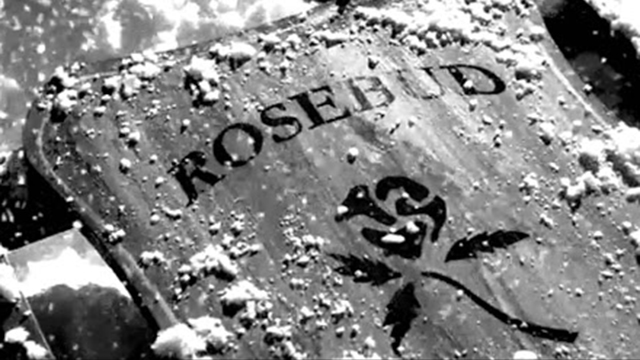
CS: Exactly. So, you guys have two series coming up this month. You’ve got Movie MacGuffins and you’ve got Growing Up On Screen. Let’s start with the “MacGuffins”. Obviously, this is a trope of storytelling that does not go away. You see it in all kinds of contemporary films – Star Wars, Indiana Jones, etc., Mission: Impossible. But yeah, so what are some of your guys’ favorite MacGuffins, or is that part of the lineup that you have coming up?
Mankiewicz: I’ll let Eddie mostly answer this because of the debate over what qualifies as a true MacGuffin – and we spent a lot of time deciding what was a MacGuffin, what was a red herring, and what was just a plot point, what was a prop, right? And if you expand the definition of MacGuffin to anything that motivates the main characters to do what they do in the movie, well then, it stops being a very interesting conversation, right? Because then it’s in almost every movie, where the characters are motivated to take action, to do something, go somewhere, get someone, whatever it is. So Eddie has what our true definition is, and I want to stick with Eddie’s.
CS: Yeah, go ahead.
Muller: I think the important thing about a MacGuffin is that it motivates the action while having no real significance whatsoever, to the audience, or in some cases, the characters that you’re empathizing with in the movie. I mean, to me, its insignificance in the grand scheme of things is what really characterizes a MacGuffin, right?
Mankiewicz: Yeah, yeah.
Muller: It’s the trigger that gets the story’s engine running, but it has no point, really, in the outcome of the story.
Mankiewicz: Right. So that’s why when if you google best movie MacGuffins, or just movie MacGuffins, and when you get Citizen Kane on there, Eddie and I are both like, no, man. No. It matters, right? A, it matters to us. We’re curious through the entire movie, right? So the audience does care. And then, B, it tells you everything you need to know about this – every little detail is summed up in that final moment of wood and fire, right?
CS: Yeah, yeah.
Mankiewicz: But to me, that doesn’t count, right? I mean, I get it. It’s a MacGuffin. It motivated the Wells character.
CS: And it’s also a filthy in-joke.
Muller: Well, yeah, there is that version that I think most of the audience would not have any frame of reference for this muddy in-joke. But I can’t agree more with what Ben is saying because a MacGuffin is never the exclamation point at the end of the story. The MacGuffin is where you’re talking about it later and you go, what were they after again? I can’t remember what it was that I was supposed to care about. Yeah, so I don’t consider rosebud to be a true MacGuffin, even though it is one of the films we’re going to be showing. It’s sort of the exception that proves the rule, maybe.
Mankiewicz: Right. But we deny its MacGuffinness. But I like that. I mean, I like the sign of what a great MacGuffin is, is that after the movie you’re like, wait. And it doesn’t matter to you, the fact that you can’t come up with it is irrelevant, and that’s why the Hitchcock movies were showing, mostly The 39 Steps and North by Northwest are like, completely perfect because you can’t remember it. You can’t describe it. No one’s going to know. No one who loves North by Northwest really knows what the thing – we don’t even really know. It was just state secrets in microfilm, right?
Muller: Yeah, that’s it.
CS: Yeah, as opposed to something more tactile, like the falcon in The Maltese Falcon, which is something a little bit more tangible.
Muller: That’s right.
Mankiewicz: And you still can’t, but I think partly because we also don’t know whether it’s real, right? We don’t know. We don’t know whether there is such a thing.
Muller: If they’re ever going to be able to find it. I mean, they get a fake, you know? But it is interesting. I think a lot of people who discovered the concept of the MacGuffin at some point in their movie-watching careers, I think a lot of people became obsessed with the idea that it was a tangible thing. And in some cases, it’s like a prop, you know, like the Maltese falcon or like the sled or the arc of the covenant or something that’s a thing that people are after. And I don’t necessarily subscribe to that, that that’s what a MacGuffin is, because as Ben’s describing North by Northwest, it’s this nebulous thing. They never really – at no point do you see it. At no point is there any scene where it’s like, there it is, and how are we going to get it and get it out of there? It doesn’t matter.
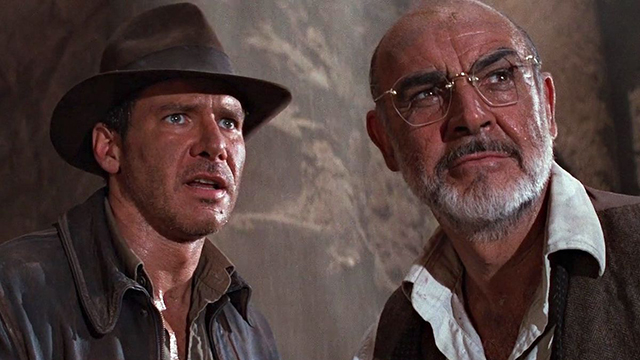
CS: Yeah, well, and then you have a movie like Indiana Jones and the Last Crusade, where they actually kind of turn it on its head, where the tangible thing is the grail, but the real MacGuffin is their relationship, the father/son relationship. That’s the thing they’re really trying to get.
Mankiewicz: That’s right.
Muller: But is that a MacGuffin, though? Because when you write something, everybody says characters in any kind of story have to have a goal. Like what do they want? I don’t know if you’ve ever seen David Mamet’s masterclass in writing. He says, it’s about what people want and the obstacles to they’re getting it. That’s it, right? So there’s always going to be a goal, but that doesn’t automatically make that goal a MacGuffin, right? Or there’s the essential ingredient in the story, right? Like Double Indemnity is a movie about an insurance policy, right? But the insurance policy doesn’t matter whatsoever. But am I going to call that the MacGuffin or would I call the relationship between Edward Z. Robinson and Fred McMurray the movie’s MacGuffin? No, I don’t think there is a MacGuffin in Double Indemnity.
Mankiewicz: Yeah, and I was agreeing with you that what’s interesting is not the pursuit of the Holy Grail in The Last Crusade, which is really as sequels go, a really good one, the important thing is the relationship. And that seems to be why they made the movie, right? The movie works because of that. And I have this great idea I can share now with people because Connery’s dead, but my brother and I long had an idea for a Bond movie, where whoever’s playing 007 is irrelevant. It could be Daniel Craig, it could be the next guy. Where he is sort of of the times, right? So he’s Bond, but he’s not slapping women on their rear ends and he’s not sort of demanding they serve him in some way, which Bond has evolved into now. But because they’ve got to get specter, there’s a sort of an old specter villain. And so, they bring back Agent 001, with the first license to kill, Connery, right, playing 001. And he, one, doesn’t know how any of the gadgets work, right? And he presumes every woman he sees is a secretary, and does awful – and you know, constantly making whoever the new Bond is uncomfortable. But it’s a buddy film and whatever, and we make fun of Connery in it. We were like, oh, we could write this. This would be good. This would be good. And you know what? It would’ve been good. Connery as 001 I think would’ve.
Muller: Yeah, and I’m betting Connery would’ve jumped at that. Like that might’ve been the only thing that could get him out of retirement was to play the original chauvinist, sexist Bond.
Mankiewicz: That’s right, right.
Muller: Yeah, he would’ve jumped on it.
CS: Yeah, I think they tried to get him. I think the Albert Finney character in Skyfall was written for Connery, but they didn’t quite get him. But I do enjoy the theory that the character he’s playing in The Rock is actually James Bond.
Mankiewicz: Yeah, that’s Bond-ish – that qualifies.
RELATED: March 2 Blu-ray, Digital and DVD Releases
The film term “MacGuffin” was coined by British screenwriter Angus MacPhail, who worked with Alfred Hitchcock, and was popularized by Hitchcock himself. The word is defined by Merriam-Webster as “an object, event, or character in a film or story that serves to set and keep the plot in motion despite usually lacking intrinsic importance.” As the plot progresses, the MacGuffin may be minimized or even forgotten. It has been derisively referred to as a “plot coupon,” and Hitchcock once remarked that it is actually “nothing at all.”
With this programming, TCM hosts Ben Mankiewicz and Eddie Muller will further define the MacGuffin and look at a half-dozen examples of films that depend upon the plot device. Suitably, three of these movies are Hitchcock thrillers where the MacGuffin is the reason for the suspense to occur.
Friday, March 5 | Movie MacGuffins – part I
8:00 PM The 39 Steps (1935)
9:45 PM Psycho (1960)
11:45 AM North by Northwest (1959)
Friday, March 12 | Movie MacGuffins – part II
8:00 PM The Maltese Falcon (1941)
10:00 PM Casablanca (1942)
12:00 AM Citizen Kane (1941)
Many of the beloved classics that on TCM have stood the test of time in several ways. Nevertheless, when viewed by contemporary standards certain aspects of these films can be troubling and problematic. This month, Reframed is looking at a collection of such movies and will explore their history, consider their cultural context and discuss how these movies can be reframed so that future generations will keep their legacy alive.
Discussing the films and the way they are perceived in changing times are all five TCM hosts: Ben Mankiewicz, Dave Karger, Alicia Malone, Eddie Muller and Jacqueline Stewart. The movies in the lineup range from the 1920s through the 1960s.
March 4
Gone with the Wind (1939)
Rope (1948)
Seven Brides for Seven Brothers (1954)
The Four Feathers (1939)
March 11
Woman of the Year (1942)
Guess Who’s Coming to Dinner (1967)
Gunga Din (1939)
Sinbad the Sailor (1947)
The Jazz Singer (1927)
March 18
The Searchers (1956)
Breakfast at Tiffany’s (1961)
Swing Time (1936)
Stagecoach (1939)
Tarzan, the Ape Man (1959)
March 25
My Fair Lady (1964)
The Children’s Hour (1961)
Psycho (1960)
Dragon Seed (1944)
Which of these TCM films are you excited to see this month? Let us know in the comments below!
